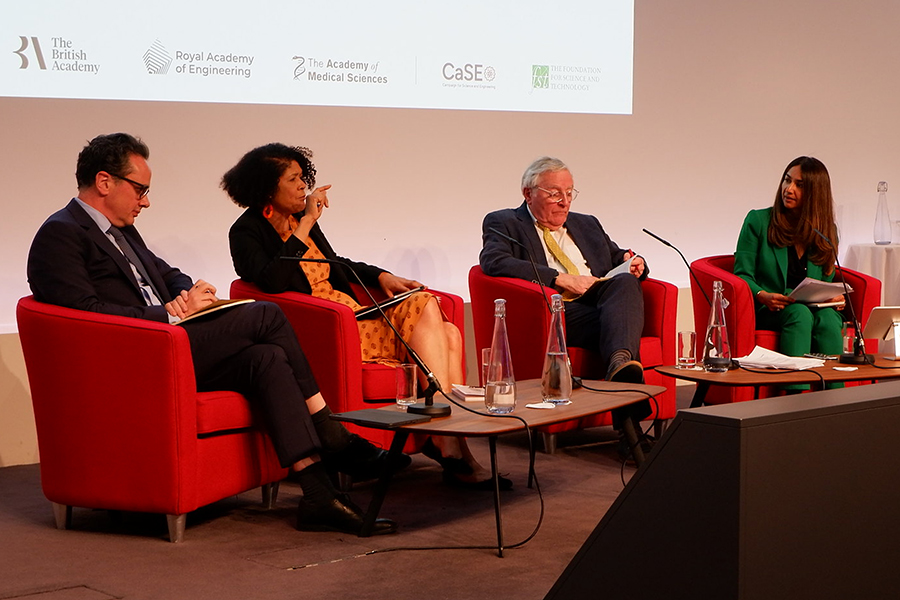
Even the most dedicated news-avoider will have had difficulty in dodging the fact that we are heading for a General Election – with enough polls, policies and politicians for everyone.
The national campaigns are in full swing, the major parties having launched their manifestos with great fanfare. For its part, the media has been doing its best to keep up with the blizzard of policy announcements and other campaign developments, but with so much at stake, and so many issues competing for media attention, it can sometimes feel like important sectors like engineering don’t get much, or any, airtime.
However, last week this was not the case, as representatives of the major political parties came together to answer questions about science, technology and innovation.
Chaired by science journalist and commentator Anjana Ahuja, the panel featured Viscount Camrose, Conservative Minister for AI and Intellectual Property at the Department for Science, Innovation and Technology, Chi Onwurah, Labour’s Shadow Science, Research and Innovation Minister, and Lord Clement-Jones, Liberal Democrat Science Spokesperson.
This event was jointly organised by the Campaign for Science and Engineering, the Foundation for Science and Technology and the four National Academies – the Academy of Medical Sciences, the British Academy, the Royal Academy of Engineering and the Royal Society. It was a chance to show those onstage the issues that really matter to the Science and Engineering community, and for the parties to do their best to win the votes of those present.
Representatives from the major political parties outlined the policies that their party have put forward to support science, innovation and technology at the forthcoming General Election, and were then quizzed on how they could deliver this.
Questions covered a diverse range of topics, from AI ethics and spending on Research and Development, to supporting the UK’s universities and increasing the diversity of engineering and science – and the panel were taken to task by the Chair, who was determined to separate the facts from the spin.
Given that the campaign so far has not allowed for a huge amount of detail on specific policies, the event allowed the audience to see the workings of the main parties, and picture how the master plans might be enacted post-July 4th.
Events like this are hugely important. Firstly, they shine a light on the policy platforms of parties and allow for more detailed examination of their proposals than a stump speech ever could. Secondly, it shows the engagement, expertise and enthusiasm of the science, innovation and technology sector; whatever party is successful at the election, it will need to work hand in hand with engineers if they are going to deliver on their promises.
When the dust has settled, the UK’s National Academies will continue to raise the issues that matter most to them, in addition to helping policymakers create better policy.
But, for now, we are all delighted to have had the opportunity to put a magnifying glass over the science, innovation and technology policies we may see delivered in the coming years.
